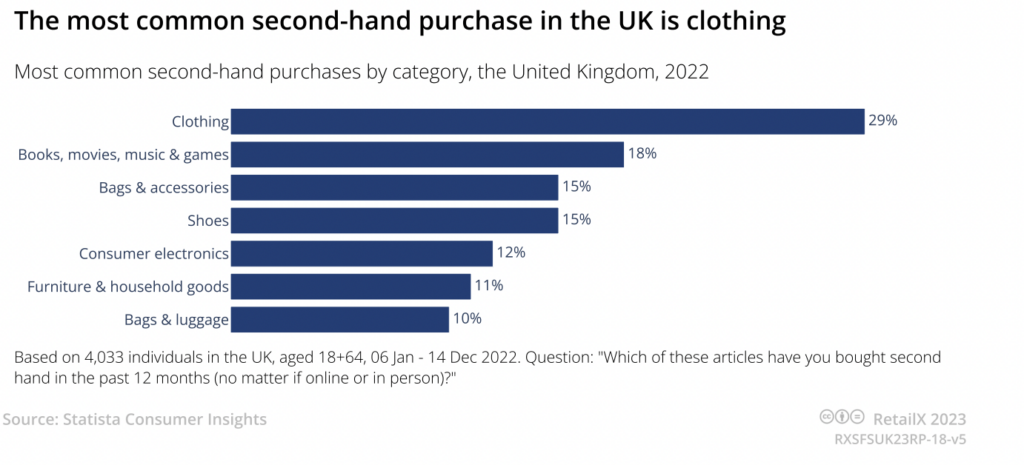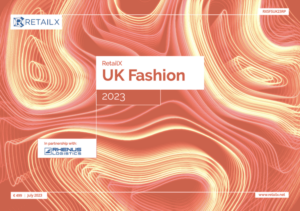If all UK adults bought half of their next wardrobe second-hand, it could prevent 12.5 billion kilogrammes of carbon dioxide emissions entering the atmosphere, new Oxfam research has revealed today, as the charity launches its Second Hand September campaign.
Since the first Second Hand September in 2019, increasing numbers of shoppers, activists and people within the fashion industry are choosing second-hand fashion.
In fact, the recently published RetailX UK Fashion 2023 report found clothing to be the most popular item purchased second-hand.

Oxfam stressed that choosing second-hand fashion extends the life of clothes, reducing the need for brand-new clothes which produce climate-damaging emissions when they are manufactured. Furthermore, money raised from Oxfam fashion raises funds for its work with partners around the world fighting the injustice of poverty and the impact of the climate emergency.
According to WRAP the average adult wardrobe consists of 118 items, and Oxfam’s research shows only 10% of wardrobe contents are second-hand.
Further findings from Oxfam highlight that if each adult in the UK donated all the clothes that they have not worn in the past year to charity shops, it could remove the need for 4.9 billion kg carbon entering the atmosphere. The calculations come amid rising awareness of the negative effects of the fashion industry, which accounts for 10% of global carbon emissions – more than international aviation and shipping combined.
Lorna Fallon, Oxfam’s retail director, said: “Choosing second-hand offers people a way to take action, to reshape the fashion industry, and reimagine the impact our clothes have on the world. As a major emitter of greenhouse gas, much of the fashion industry as it stands is a threat to people and planet. But it doesn’t have to be that way.
“In 2022, UK consumers bought 32% more second-hand clothes than in 2018, before the first Second Hand September campaign. Shopping this way sends a clear message to the fashion industry that consumers want, and expect, things to change.”
Discover more in the full RetailX UK Fashion 2023 report, it found that while fashion consumers are among the keenest to shop sustainably and ethically, retailers and brands don’t always make it easy.
The report also includes exclusive case studies on the likes of Debenhams, Next and luxury pre-loved marketplace Vestiaire Collective.










